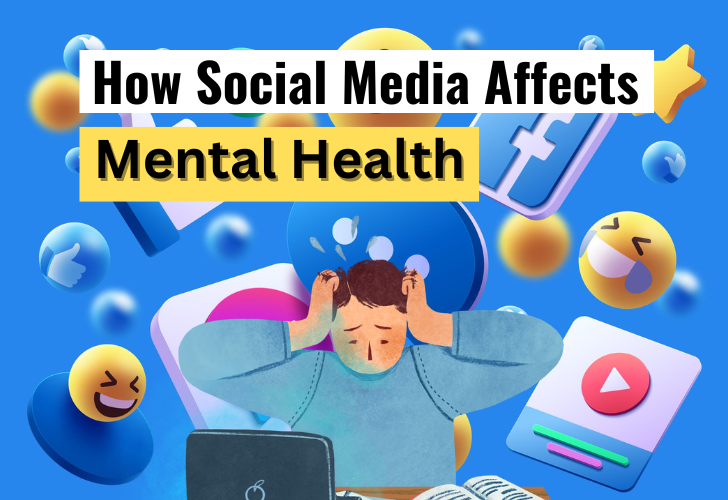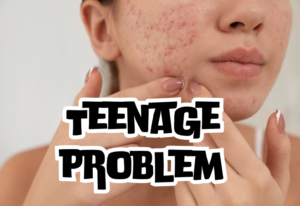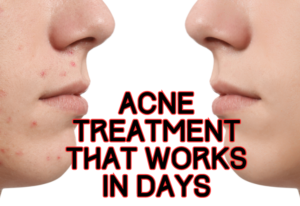
How Social Media Affects Mental Health: 10 Statistical Alarms
As instances of depression, anxiety, and suicidal thoughts rise among children and adolescents, it is time we review how social media affects mental health.
In the bustling world of today, where smartphones have become extensions of our hands and social media platforms are our virtual playgrounds, it’s crucial to understand the intricate relationship between social media and mental health. While these platforms have connected us in unprecedented ways, they also come with their own set of challenges that can significantly impact our well-being.
The Fabric of Relationship has Changed
The fabric of friendships and relationships is slowly changing in the social media age, frequently at the expense of sincere communication. Inversely, the seemingly limitless connectedness provided by social media sites such as Facebook, Instagram, and X(formerly twitter) creates a wall between people. Digital exchanges take the place of in-person contacts, reducing substantial talks to emoticons and brief comments. The social media comparison trap is made worse by the continuous exhibition of carefully manicured lives, which promotes rivalry and jealousy rather than sincere enjoyment of one another’s accomplishments. Friendships that were formerly cultivated via mutual experiences and in-person interactions run the risk of being eclipsed by the attraction of online approval.
The Double-Edged Sword: Connection vs. Isolation
The ability to communicate with people across geographic borders is one of the main promises of social media. Although this connectedness is an effective means of establishing and preserving relationships, it can also exacerbate feelings of loneliness. It’s simple to slip into the comparison trap while scrolling through well chosen feeds full of pictures of other people’s seemingly ideal lifestyles, which can leave us feeling inadequate and alone.
Key Statistics On How Social Media Affects Mental Health
1. Increased Anxiety and Depression Rates
According to Jama Research, published in july 2023 The trend started in the 2010s, mostly affecting young people and teenagers. In scientific terms, at least two broad categories of characterizations have been put forth;
- An increase as an epidemic of mental illnesses,
- Rise in youth psychological distress as a reflection of sociopolitical disarray and adversity.
In simple words, this contrast might be seen as a “sick individuals vs sick society polarity“.
2. Association with Sleep Disturbances
According to the American Academy of Pediatrics, children and adolescents who spend excessive amounts of time on screens—including social media—may experience sleep difficulties. Increased stress and worry are among the mental health problems associated with poor sleep quality.

3. Cyberbullying Impact
Approximately 37% of American students between the ages of 12 and 17 reported having encountered cyberbullying at some time, according to a poll conducted by the Cyberbullying Research Center. It is often known that cyberbullying has a detrimental effect on mental health, leading to elevated levels of anxiety and sadness.
4. Fear of Missing Out (FOMO)
According to a Pew Research Center survey, 69% of social media users said they have occasionally felt like they’re missing something. This dread may exacerbate anxiety and feelings of inadequacy, which can harm one’s mental health in general.
5. Impact on Body Image and Self-Esteem
The National Eating Disorders Association emphasizes how viewing idealized body pictures on social media can lead to eating disorders, low self-esteem, and body dissatisfaction. Research suggests a connection between social media use and unfavorable evaluations of one’s body.
6. Digital Addiction and Mental Health
In a UK poll, the Royal Society for Public Health (RSPH) ranked several social media sites according to how they affected people’s mental health. It was discovered that Instagram had the greatest detrimental effects, especially when it came to problems with anxiety, despair, loneliness, and body image.
7. Social Comparison and Mental Well-Being
According to research that was published in the Journal of Social and Clinical Psychology, cutting back on daily social media use to 30 minutes can significantly increase wellbeing and lessen feelings of loneliness and sadness. The study highlights how social comparison has an impact on mental health.
8. Adolescent Mental Health and Screen Time
According to a research in the journal JAMA Pediatrics, teenagers who spend more time on screens—including social media—are more likely to have depressive symptoms. According to the research, in order to achieve better results for mental health, screen time needs to be monitored and controlled.
You’ll see how you, too can:
– Significantly reduce stress, negativity, and worry
– Become healthier and more alive
– Eliminate stress, negativity, and worry
– Breakthrough your stops in areas of wealth, abundance, success, and happiness
– Transform your life to resemble your “dream life.”
– Turn struggle into accomplishment
9. The Endless Scroll: Time Consumption and Productivity
Social media sites are made to keep people interested, which frequently results in hours of pointless scrolling. These platforms’ addictive qualities can lead to a decrease in productivity when users’ time is diverted from more worthwhile pursuits to unending feeds. This overindulgence might worsen mental health by causing regret and guilt feelings.
10. Sleep Disruption: The Blue Light Effect
The widespread usage of cellphones and social media platforms late at night might cause sleep habits to be disturbed. Screen blue light has been shown to disrupt melatonin production, a hormone involved in sleep regulation. Increased stress and worry are among the mental health problems that have been connected to poor sleep quality.
While these statistics provide valuable insights, it’s important to approach the relationship between social media and mental health with nuance, recognizing that individual experiences can vary. Ongoing research continues to explore the complex dynamics at play in the digital landscape and their impact on our well-being.
Addressing Social Media-Induced Mental Health Issues
Despite the fact that social media clearly has an impact on mental health, it’s critical to implement tactics to lessen these impacts and encourage a healthier online experience.
1. Mindful Consumption
Pay attention to how much time you spend on social media. Set daily use restrictions to prevent pointless scrolling.
2. Curate Your Feed
Unfollow accounts that make you feel inadequate or negatively affect you. Make sure you are surrounded by inspirational and uplifting stuff.
3. Real-Life Connections
Give in-person connections a higher priority than online ones. To preserve equilibrium, cultivate relationships away from the computer.
4. Digital Detox
Take regular pauses from social media use. A much-needed mental reset might come from unplugging for a day or two, maybe even a weekend.
5. Promote Positivity
Distribute inspiring and upbeat content. Consider the effect that your posts might have on other people and help create a more positive online community.
6. Educate Against Cyberbullying
Promote candid discussions around cyberbullying and instruct users on appropriate online conduct. Report and ban anyone who are involved in harmful activity.
7. Establish a Sleep Routine
Cut down on screen time before bed to enhance the quality of your sleep. Create a relaxing evening ritual to help you decompress after using technology all day.
Navigating the Digital Landscape Mindfully
The intricate interaction between connection, comparison, and the need for validation characterizes social media’s effect on mental health. It’s critical that consumers engage these sites mindfully, understanding both their potential advantages and disadvantages. We can leverage the benefits of social media while preserving our mental health in the digital age by cultivating a pleasant connection with it.




